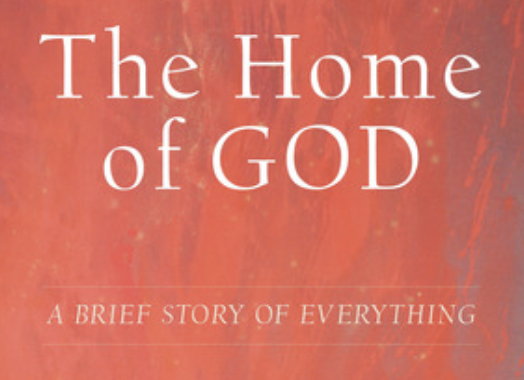Here is a sermon I preached at Christ Church Cathedral in Lexington, KY on December 31. If you are interested in the theme of God making the world God’s home, here are a couple resources from Miroslav Volf that you might find interesting:
A book-length treatment: The Home of God: A Brief Story of Everything by Miroslav Volf and Ryan McAnnally-Linz.
A essay in a free pdf form, Why Did God Create the World? (And Why You Need to Know).
And now, to my sermon.
Welcome Home, A Sermon on the Gospel of John, chapter 1
———-
Have you ever wondered why God created the world?
God probably had at least several reasons.
One of those reasons is mentioned in our Gospel reading today from the first chapter of John.
John refers to the second member of the Trinity and says that this God made the world and everything in it including you and me.
This is how John describes it: “All things came into being through [God], and apart from [God] not one thing came into being.”
None of this would have been surprising to a first century audience.
Everyone in the ancient Mediterranean believed the world was created by divine forces.
But John takes an unexpected turn in verse 14.
John says that this second person of the Trinity, this Word of God, took on flesh and became part of creation in the birth of Jesus.
But why did God do this?
Why did God make the world and then enter it in the form of baby?
Why do we have the Christmas story at all?
John continues his vision.
In the second half of verse 14 we read that this incarnate God—this divine Word made flesh—lived among us.
God lived among us.
We often pass over that phrase too quickly.
God lived among us.
In other words, God made the world because God wanted to make the world God’s home.
This isn’t the only time this idea is mentioned in the Bible.
God making this world God’s home is how the Bible begins and how it ends.
The Bible begins with the Book of Genesis describing God creating the universe.
In this act of creation, God makes a garden and places plants, animals and humans in it.
After creating this garden God visits it and the humans in it.
The garden is God’s lake house or weekend home.
The biblical story ends with the book of Revelation.
In the second to last chapter of the Bible we read of a vision of God’s home in heaven.
God’s home is a city.
It is radiant and beautiful.
The city comes down out of the heavenly skies and rests on earth.
Heaven and earth are fused together.
In the vision a voice cries out and says:
Look, God’s home is among humanity. God made God’s home with them.
We get to the end of the Bible and discover that God has turned God’s lake house into God’s one and only home.
————
We Episcopalians join with many other Christian denominations around the world and structure our gathered worship services around the Revised Common Lectionary.
The Lectionary is a three-year cycle of readings that takes us through the majority of the Christian Bible every three years.
It is inspired by an ancient Jewish pattern of reading through the Hebrew Bible in synagogue over a period of three years.
The lectionary approach to reading Scripture is a gift in several ways.
It helps us experience the entire story of Scripture multiple times throughout our lives and gives us time to think deeply about its parts.
The lectionary also links us with other Christians all over the world who are reading and thinking about the same Scripture passages that we are in this exact moment.
But with every good thing, there are also weaknesses.
One weakness of the lectionary cycle is that we read the Bible in fragments.
Each week we hear little snippets of bigger stories.
These snippets are, by definition, taken out of their larger context.
Because of this, it can be hard for us to discern the overarching storylines of Scripture and the ideas of God that run through the Bible.
In other words, it can be challenging for us to make sense of the biblical fragments we hear each week.
So today I’d like to offer you this theme of God making the earth God’s home as a way to hold Scripture together.
From beginning to end the Bible is an epic story of God making this world God’s home.
God invites you and me to join with this work.
We are God’s homemakers.
Through our actions, decisions, and movements we are to cultivate the spaces around us—and even our our hearts—into places that welcome the divine and simultaneously welcome other people into communion with God in God’s home.
This Christmas season we are reminded that God is making a home here among us.
How will you cultivate and care for God’s home this coming year?
